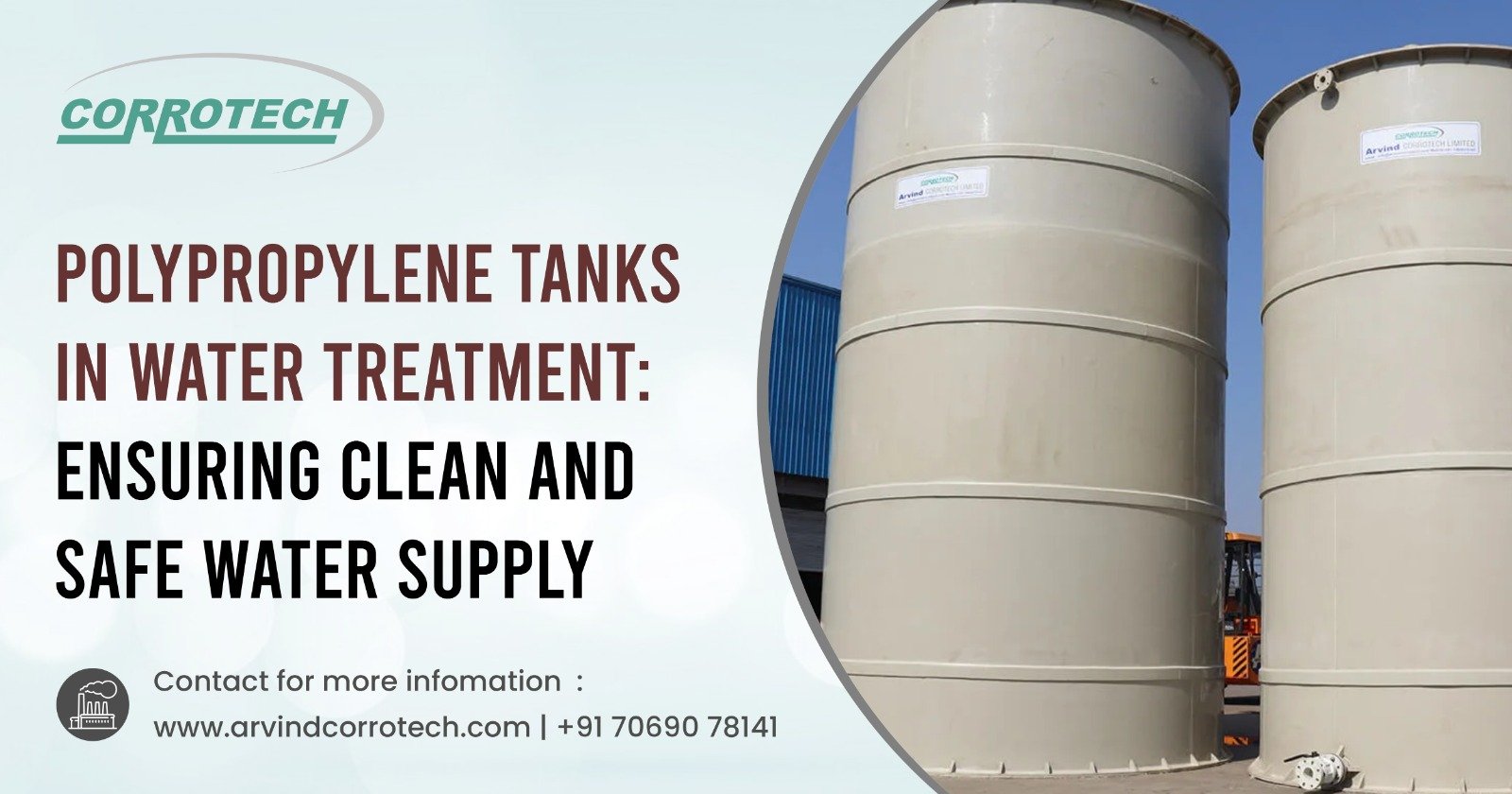
Continued industrial development to meet the ever-rising demand of the population is greatly affecting the environment. Consequently, sustainable development is gaining prominence. A water treatment plant is a forward-looking step, enabling wastewater treatment, before eventually discharging in river streams or farming land.
In this blog, we are going to evaluate, focus on, and highlight the importance of polypropylene tanks in wastewater treatment plants, regulatory compliance, and how the industrial tanks ensure clean and safe water supply.
Before we take a deep dive into the subject, let’s first understand what an industrial water treatment plant is.
Understanding industrial wastewater treatment plant
Industrial wastewater treatment is an important aspect of modern urban infrastructure and sustainable development to protect the environment from getting polluted and public health.
As the name indicates, wastewater is used water that has various pollutants in its composition due to domestic, industrial, or commercial use.
A treatment plant is essentially a scientifically designed method involving a variety of machines, tanks, tools, and stages, to convert the polluted water into potable water.
Understanding polypropylene
Polypropylene is also referred to as PP in industrial circles. It is essentially a versatile thermoplastic with a variety of applications in different types of industries. As far as mechanical properties are concerned, its features are considerably similar to plastics of the polyethylene family, including HDPE. However, PP is relatively stiffer and tougher than HDPE.
Choosing the ideal tank for wastewater treatment
The market is flooded with a variety of tanks aimed for treatment and potable water storage, including customary concrete tanks, steel tanks, iron tanks, and polypropylene tanks. When it comes to choosing the perfect tank, it makes sense to learn about the unique properties and features of a variety of tanks.
Why choose polypropylene tanks for water treatment plant
Over the years, polypropylene tanks have been garnering the attention of industries and urban municipalities for their unique properties and features. These tanks bring along with them distinct advantages, making them perfect for a variety of applications, including treatment plants. So, what are those distinct features? This section will highlight the distinctive features of PP tanks.
Resistance to corrosion
This is one of the most important unique features of polypropylene tanks. Corrosion resistance ensures that it has a relatively longer lifespan, ensuring durability over steel or iron-made storage tanks. Their longevity is credited to the fact that they are designed to withstand harsh weather conditions, UV rays, etc.
Lightweight
By nature, polypropylene is a lightweight product, making it one of the perfect treatment plants. Scientifically, it’s attributed to its low destiny, making it relatively lightweight. This unique feature helps with ease of handling, transportation, movement, and installation. Plenty of workers are not required to move it or install it, making it an ideal tank for a variety of industrial applications, including wastewater treatment plant solutions.
Easy to maintain
These types of tanks are relatively easy to maintain. You don’t have to worry about regular painting to control corrosion. The ease of maintenance allows the management to focus on other critical issues of the company.
Cost-effectiveness
This is again an important feature of PP tanks. As an owner of a company or a treatment plant, we search for products that are aligned with the company’s objective and are within budget. PP tanks are widely acknowledged for their cost-effectiveness, making them a preferred choice over traditional tanks. In the sense, it’s a product worth an investment.
Durability
This is one of the most significant features of these tanks. It has the intrinsic ability to withstand physical stress, impact, and harsh environmental factors, resulting in a long lifespan. In order to cut down operating costs, companies these days are acquiring durable products. Rightly so. In the long run, durable products add to profit.
Is a PP tank ideal for storing drinking water? Let’s now resolve the important mystery related to this blog. Many people cast aspersions on the suitability of these tanks for storing potable water.
Ideal for potable water storage
PP tanks designed and manufactured using food-grade PP are ideally suited for storing and transporting potable water. As you are aware galvanized steel tanks generally don’t pose a health risk, however, they affect the taste of water, which may not suit the taste buds of many people. Many people avoid drinking water supplied through a steel stank.
Resistant to chemicals
As polypropylene is chemically inert, it doesn’t react with any chemicals when exposed directly to chemicals. As a result, it offers tremendous resistance to chemicals, making it suitable for potable water. Whereas, tanks made of steel don’t exhibit this important feature.
Last but not least, PP tanks don’t absorb moisture that naturally envelops them due to changing weather conditions. This feature can’t be expected from steel-made structures, like tanks. Subsequently, the PP material is ideal for storing water and other edible liquids.
Steps in the water treatment plant
Some of the common stages in the treatment of water comprise:
-
- Coagulation
- Flocculation
- Sedimentation
- Filtration systems
- Disinfection
Conclusion
Considering the significance of water treatment plants for sustainable development, scientists are working on innovative technology and methods, including advanced treatment methods, filtration, carbon absorption, distillation, and reverse osmosis. Polypropylene tanks are designed ideally for this purpose.

